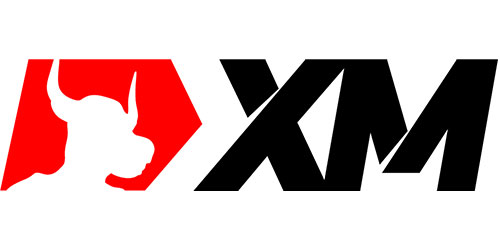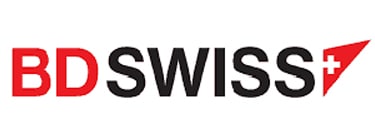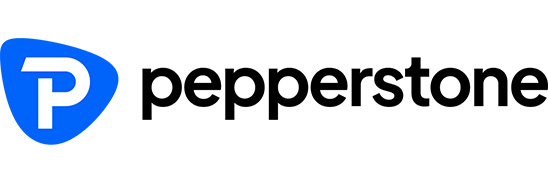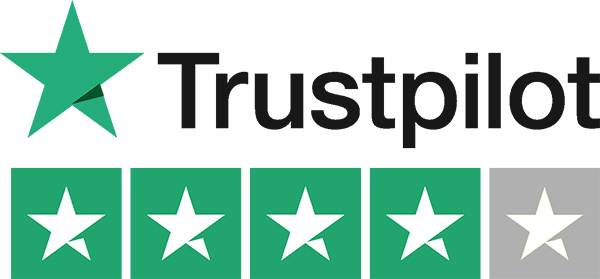
Compound is a decentralized lending protocol that enables users to earn interest on their cryptocurrency holdings by depositing them in one of the platform's numerous pools.
Top 10 Forex Brokers
Broker
Rating
Regulators
Min Deposit
Leverage
Website
Top 10 Forex Brokers
Broker
Rating
Min Deposit
Leverage
When a user contributes tokens to a Compound pool, they are rewarded with cTokens. These cTokens reflect the individual's investment in the pool and could be redeemed at any moment for the underlying cryptocurrency that was first placed into the pool.
For instance, putting ETH into a pool will result in the receipt of cETH. The exchange rate which is associated with cTokens to the underlying asset improves over time, which means that users may redeem them for a greater amount of the underlying asset than users originally invested – this is how interest is dispersed.
On the other hand, by depositing collateral, borrowers may get a secured loan from any Compound pool. The maximum loan-to-value (LTV) result differs per collateral asset but is now between 50% and 75%.
The interest rate charged varies according to the kind of collateral used, and borrowers may risk immediate liquidation if their collateral drops below a certain maintenance level. Since the mainnet debut in September 2018, the Compound platform has exploded in popularity, recently surpassing $800 million in total locked value (TLV).
| Component | Compound (COMP) |
| Technologies | Smart Contracts |
| Market Capitalization | $1.3 Billion+ |
| Open-Source | Yes |
| Consensus Mechanism | Proof of Stake |
| Smart Contracts | Yes |
| Founders/Authors | Robert Leshner and Geoffrey Hayes |
| Launch Date | 2018 |
| Circulating Supply of Coins | 6,310,303 COMP |
| Maximum Coin Supply | 10,000,000 COMP |
| Mining-based Coin? | No |
| Is Compound a Stablecoin? | No |
| Does Compound have a burn rate? | No |
| Does Compound have a Whitepaper? | Ys, the whitepaper can be viewed here |
Evolution and Development of Compound
Compound was started by Robert Leshner and Geoffrey Hayes, whose former company, Britches, gathered items from local retailers for sale on PostMates.
Compound secured $8.2 million in investment in 2018 from well-known venture capital companies Andreessen Horowitz and Bain Capital Ventures, the venture capital arm of consultancy giant Bain.
Compound secured an extra $25 million in 2019 from many of the same investors, as well as new investors such as Paradigm Capital, a firm founded by a Coinbase co-founder.
Initially, a portion of the entire quantity of COMP coin was awarded to firm investors and workers.
What makes Compound unique?
Compound is not a novel idea; it is a DeFi – Decentralized Finance lending platform based on blockchain technology.
Compound is a blockchain-based project and lending platform that is showing significant promise.
Interest rates are extremely dynamic, determined by supply and demand and the added COMP awards. This is one of the most profitable investments in terms of overall profitability (interest + rewards).
In principle, it is straightforward; anyone can deposit a range of supported ERC-20 tokens and borrow others with a leverage of up to around 3x. Users can borrow several tokens, including Tether (USDT), BNB, Chainlink (Link), USDC, and VeChain, to only name a few.
Compound eliminates the requirement for a third party on the Ethereum blockchain by using smart contracts. As a result, anybody working with the protocol may effectively borrow, lend, purchase, or sell their tokens.
Not only does the protocol provide loan-to-value ratios of up to 1.5x, but it also functions as a crypto exchange where users can swap their tokens and a liquidity market where individuals or companies may purchase or sell assets without significantly impacting the asset's price.
What are the main uses for Compound?
Compound (COMP) is the network's native coin, which cannot be mined. COMP can be obtained solely from the platform's developer team. The total supply of this coin is 10 000 000 COMP.
Each time a user deposits cryptocurrency into the protocol, the system produces ERC-20 cTokens.
For example, if users apply for a loan using Ether as collateral, they will instantly obtain cETH from the exchange, which will earn them interest based on the Annual Percentage Yield, also known just as the APY, of the token that they deposited.
Simply put, when users deposit some cryptocurrency on the official Compound website, the protocol will take care of everything. In addition, users can also trade their cUSDC for standard USDC at any moment and on exchanges like Coinbase.
Despite its dedication to the DeFi, the Compound protocol is not entirely decentralized. The Compound Labs team maintains complete control over the smart contracts and other system components.
Simultaneously, Compound offers a governance mechanism that enables users to submit and vote on their own recommendations. The system encourages community engagement and takes user suggestions for protocol enhancements into account.
What is the future potential for Compound?
Despite criticism for not being completely decentralized, Compound has benefited users in the bitcoin and DeFi sectors.
In the future, the Compound team intends to give the community complete power over the Compound protocol through a Decentralized Autonomous Organization.
Price analysis on Compound
Compound was initially launched in 2018, but price data is only available from 2020 onwards as follows:
| 2020 | September | October | November | December to date | |
| COMP Price High | $337.05 | $509.8 | $342.23 | $383.49 | $235.85 |
| COMP Price Low | $87.64 | $312.88 | $302.97 | $260.08 | $180.98 |
| Market Cap | $863.2M | $2.81B | $2.06B | $2.31B | $1.45B |
Price prediction on Compound
According to expert projections, long-term growth is projected; the price forecast for 2026 is 3493.100 US Dollars. With a five-year investment, revenue is estimated to be around +890.66% of the COMP's current USD price.
The Compound (COMP) price estimate may surprise investors, hitting a minimum of $500 by the end of the year and up to $650 by 2023, making it a five-year investment.
Which wallets are the best option for storing Compound?
The best options for storing, sending, and receiving COMP include:
- Exodus
- Ledger Nano X
- Mycelium
- Coinbase Wallet
- Atomic Wallet
1. Exodus: Exodus is an aesthetically beautiful and intuitive wallet. Exodus, once a desktop-only wallet, now includes iOS and Android applications and is compatible with Trezor hardware wallets. Nonetheless, the desktop wallet program is updated every two weeks.
2. Ledger Nano X: Ledger is a well-known brand of hardware wallets. Its first wallet, the Ledger Nano S, was a feature-rich and secure cold wallet. The Ledger Nano X hardware device incorporates existing features of the Nano S but adds a built-in battery and features like Bluetooth and asset management.
3. Mycelium: Mycelium is a well-known crypto wallet that focuses on Bitcoin. It has been available since 2008 as a mobile-only software wallet and remains one of the finest solutions for Android and iOS users.
The wallet's security and transaction choices are two of its strengths. The app's code may be replicated and compared to the original to detect any security flaws, and it includes many pin protection levels.
The wallet software has four suggested levels of transaction fees — low priority, regular, economy, and priority — and many user account kinds.
4. Coinbase Wallet: Coinbase Wallet is a great wallet for those new to crypto. The software connects to most major bank accounts and features a basic three-tab layout with easily recognized functionalities. Coinbase Wallet supports over 500 crypto assets, including non-fungible tokens (NFTs).
5. Trezor One/Model T: Trezor is a well-known crypto brand, having introduced the first hardware crypto wallets. Both of its existing models are secure and support many assets.
Best Bitcoin Wallets are the same as compound wallets.
Where can you buy Compound?
COMP can be bought, sold, and exchanged on any of the following exchanges:
- Coinbase Pro
- Binance
- Huobi Global
- CoinFLEX
- Upbit
1. Coinbase Pro: Coinbase Pro was previously known as GDAX, a sophisticated trading platform that is owned and managed by the popular, reputable Coinbase. Coinbase Pro was established and launched as an extension of the Coinbase exchange, and it offers additional advantages, including ease of use, security, and increased liquidity.
| PROS | CONS |
| User-friendly and innovative exchange | KYC procedures are tedious and time-consuming |
| There are no withdrawal fees charged | Support responses can be slow |
| There is robust security on the platform | Coinbase Pro is more suited to professional traders |
| The platform is compliant with regulations | |
| There are several advanced trading features offered |
2. Binance: Binance is a crypto exchange that is known for its high level of trustworthiness, range of crypto assets, and low transaction costs. Binance accommodates crypto-only traders, active traders, and those who want to participate in crypto-to-crypto trading opportunities.
Customer support is given through self-help as well as support tickets, and users can download the Binance app for free from the App Store or Google Play.
| PROS | CONS |
| Low commissions and fees charged with VIP pricing | There are high fees for instant purchases |
| Offers a selection of crypto assets | The exchange is not available in all regions |
| Offers crypto-to-crypto trading | There is no telephonic support |
| The platform supports staking |
3. Huobi Global: Huobi Global is a world-renowned virtual asset exchange. The network was established in China but is currently based in Seychelles due to new Chinese crypto restrictions. Huobi Global has no account minimum but does have a deposit requirement.
Huobi Global is an exchange that is suited to both intermediate, advanced, and professional traders and investors.
| PROS | CONS |
| There is 24/7 customer support given | The exchange may be confusing for complete beginners |
| There is a mobile app for iOS and Android devices | |
| The exchange is functional and easy to navigate | |
| The platform is feature-rich | |
| There is a low minimum deposit requirement of $50 upon registration |
4. CoinFLEX: CoinFLEX is a crypto exchange that offers high leverage levels and derivatives trading to beginner and professional traders. CoinFLEX offers several trading options, including spot, swap, futures, and more. The platform also offers crypto users the chance to earn passive income through different markets.
| PROS | CONS |
| The exchange offers spot and margin trading | The interface can seem messy, and it takes some getting used to |
| There are several investment programs offered | There are trading restrictions applied to certain regions |
| The exchange has an innovative mobile trading app | |
| There is a transparent fee schedule offered and commissions are according to the account balance | |
| The mobile wallet functions as an exchange, wallet, and a retail investor account |
5. Upbit: Upbit, a leading cryptocurrency exchange based in South Korea, was established in 2017. They support over 150 cryptocurrencies, including Bitcoin, Ethereum, Litecoin, Tether, Ripple, and others.
| PROS | CONS |
| The exchange offers a sophisticated trading platform | Live chat support is not available |
| There are several advanced trading tools provided | US clients are not accepted by the exchange |
| Traders have access to several crypto assets | There are limited funding options |
| There are educational sources offered | |
| The exchange has a high trust score |
You can buy Compound safely from these cryptocurrency platforms.
Are there criticisms against Compound?
Yes, Compound has previously faced criticism because it was too centralized. In addition, after a platform upgrades handed $90-million worth of bitcoin to customers, its creator's CEO begged them to return it.
What is Compound’s largest Competitor?
Aave is the largest competitor of Compound.
Aave is a decentralized blockchain-based lending protocol and project that allows users to borrow crypto assets and earn interest when they provide liquidity to the platform.
Transparency and openness in decentralized finance were driving forces behind the open-source lending platform. With the Aave platform, users can borrow, lend, and earn interest on their crypto stake without using an intermediary.
Aave aims to tackle some of the most severe financial issues, particularly in the borrowing and lending sector, by decentralizing centralized financial services.
Unlike with typical financial systems where banks and lending organizations take the interest profits, the asset owner receives the interest earnings.
The largest differences between Aave and Compound are as follows:
- Aave outperforms Compound, and it has a significantly larger market capitalization.
- Compound has more active users than the Aave platform
- The borrowing volume held by Aave is merely 23%, while Compound has a larger market share of over 77%.
- Aave features more assets than Compound.
What can Compound smart contracts do?
A Compound money market is fundamentally a ledger that enables Ethereum accounts to provide or borrow assets while calculating interest as a function of time.
The protocol's smart contracts will be open source and entirely free to use by computers, decentralized applications, and people.
Each money market is constructed as a smart contract that adheres to the ERC-20 standard for tokens. Users' balances are denoted by cTokens; users may generate cTokens by contributing assets to the market or redeem cTokens for the underlying item.
Is Compound a Good Investment?
Yes, Compound is a good investment option.
Compound's rising Total Value Locked is one of the primary motivations to invest. According to cryptocurrency researchers, the overall quantity of underlying supply safeguarded on Compound is increasing significantly.
If the TVL climbs significantly in the future, the price of Compound might skyrocket. However, this is only one of the numerous reasons why investing in Compound may be beneficial.
What is the supply and distribution of Compound?
As is the case with many other digital assets, only a finite quantity of COMP tokens will ever exist. The overall supply is limited to ten million COMP, of which fewer than a third (3.3 million) are in circulation as of this writing.
Only little more than 4.2 million of these ten million tokens will be given to Compound users over four years. The second-largest allocation (almost 2.4 million COMP) will be issued to shareholders of Compound Labs, Inc, while 2.2 million tokens will be allocated to the Compound founders and existing staff on a four-year vesting schedule.
Finally, 775,000 COMP will be set aside for community governance incentives, while the remaining 332,000 COMP will be distributed to future team members.
The precise rate of COMP emission is susceptible to vary over time since voters can raise or decrease the rate via community governance.
Is Compound a viable Alternative Coin?
Yes, Compound is a good alternative coin based on the following metrics:
- Hacking – Compound's blockchain has not been compromised
- Security – Compound is a secure blockchain using some of the most robust technologies
- Potential Investment – As a lending platform, Compound has a lot of investment potential because of its role in DeFi.
Any cryptocurrency that isn't Bitcoin is referred to as an altcoin.
What are the differences between Compound and Bitcoin?
Bitcoin is the largest cryptocurrency in the crypto market, and there are several driving factors behind its price, including its scarcity and popularity as a store of value.
Compound is an innovative lending platform that supports several ERC-20 tokens that can be locked up while borrowers take out a crypto loan in other tokens.
| Bitcoin | Compound | |
| Price change 20/21 | +400% | +43% |
| Market Cap | $800 Billion+ | $1.3 Billion+ |
| Past Hacks | None | None |
| Popularity | Very High | Low |
| Altcoin Rank | #1 – Original Crypto | #82 |
What are the differences between Compound and Ethereum?
Compound is a blockchain project that was launched on Ethereum, the largest programmable blockchain in the crypto market. As an ERC-20 token, Compound allows for other ERC-20 tokens to be locked up on the platform, allowing users to take out crypto loans.
| Ethereum | Compound | |
| Price change 20/21 | +880% | +43% |
| Market Cap | $460 Billion+ | $1.3 Billion+ |
| Past Hacks | None | None |
| Popularity | Very High | Low |
| Altcoin Rank | #2 | #82 |
What are the differences between Compound and Dogecoin?
With Dogecoin, you can transfer money to anybody, anywhere in the world, for free. Consider it to be “the cash of the internet.” Community control of Compound is enabled using the Compound (COMP) token, which is an Ethereum token.
Decentralized interest rate markets enable users to supply and borrow Ethereum tokens at changeable interest rates, which is how the protocol works.
| Dogecoin | Compound | |
| Price change 20/21 | +7,300% | +43% |
| Market Cap | $22 Billion+ | $1.3 Billion+ |
| Past Hacks | None | None |
| Popularity | High | Low |
| Altcoin Rank | #12 | #82 |
What are the differences between Compound and NEO?
Described as a community-driven, open-source platform, Neo is harnessing the inherent benefits of blockchain technology to create an optimal digital world of tomorrow.
Users may provide and borrow Ethereum tokens at changing interest rates using the Compound protocol, a set of decentralized interest rate marketplaces. Delegates of COMP token holders can discuss and vote on improvements to the platform's protocol.
| NEO | Compound | |
| Price change 20/21 | +160% | +43% |
| Market Cap | $1.70 Billion+ | $1.3 Billion+ |
| Past Hacks | None | None |
| Popularity | Medium | Low |
| Altcoin Rank | #69 | #82 |
What are the differences between Compound and NFTs?
Nonfungible tokens (NFTs) are digital assets that each have a unique value, with no two NFTs holding the same characteristics or value as another. Compound, on the other hand, is fungible, which means that one COMP has the same value and characteristics as another COMP.
What are the differences between Compound and Cardano?
The Cardano Foundation is a cryptocurrency and blockchain organization established in Zug, Switzerland. The Foundation's primary goal is to “standardize, preserve, and promote” Cardano Protocol technology.
Compound is an innovative, powerful blockchain-based lending platform where users can lock up ERC-20 tokens, allowing them to take out a crypto loan.
| Cardano | Compound | |
| Price change 20/21 | +2,100% | +43% |
| Market Cap | $42 Billion+ | $1.3 Billion+ |
| Past Hacks | None | None |
| Popularity | Very High | Low |
| Altcoin Rank | #7 | #82 |
Is Compound a lending cryptocurrency?
Yes, Compound is a blockchain-based lending platform.
Users can easily deposit cryptocurrencies into loan pools that borrowers can access via Compound. Lenders are subsequently compensated with interest on the assets that they have locked on the platform. When a lender makes a deposit, Compound pays them with a new cryptocurrency known as a cToken.
How can Compound compute for interest?
The interest formula that is used when calculating the interest on Compound is as follows: A = P (1 + r/n) (not).
In this formula, P represents the principal amount, r represents the interest rate, n represents the number of times interest is compounded each time, and t represents the total number of periods.
Is Compound the only cryptocurrency that provides lending?
No, Compound is not the only crypto project that offers lending services.
Crypto lending is a term that refers to the process of lending crypto assets or fiat cash to borrowers at a fixed interest rate. As a result, crypto lending is analogous to the loan procedure in conventional banking systems.
The two most prominent aspects of the crypto loan process demonstrate the parallels to regular banking. There are crypto lenders who, on average, have more cryptocurrencies and are seeking passive income alternatives.
On the other side, there are borrowers, who are often persons in need of loans secured by crypto assets they own. Two different platforms offer lending services, namely Centralized Finance (CeFi) platforms and Decentralized Finance (DeFi) platforms.
Centralized finance platforms (CeFi) often act as mediators in the crypto lending process. During the loan duration, a centralized crypto lending platform would handle lenders' assets and borrowers' collateral.
A centralized crypto loan platform would also need KYC, removing anonymity. However, DeFi or decentralized finance platforms provide a decentralized method to crypto financing.
DeFi systems execute financing operations using smart contracts. Most importantly, DeFi lending systems might automate the whole loan process, including contract execution, if certain circumstances are met.
Apart from Compound, there are several other crypto lending platforms, including:
- Celsius
- Aave
- Binance
- Alchemix
- CoinLoan
- BlockFi
- YouHodler
- MakerDAO
- MoneyToken
Table of Contents













